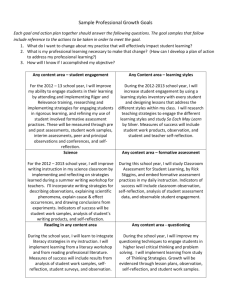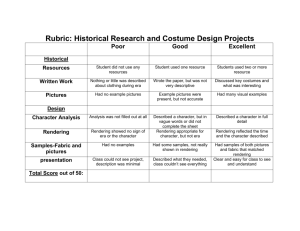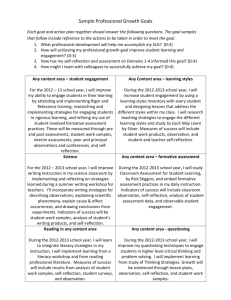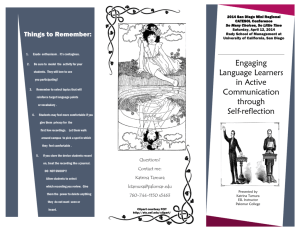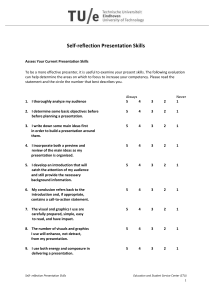The Essentials of Effective Teaching
advertisement
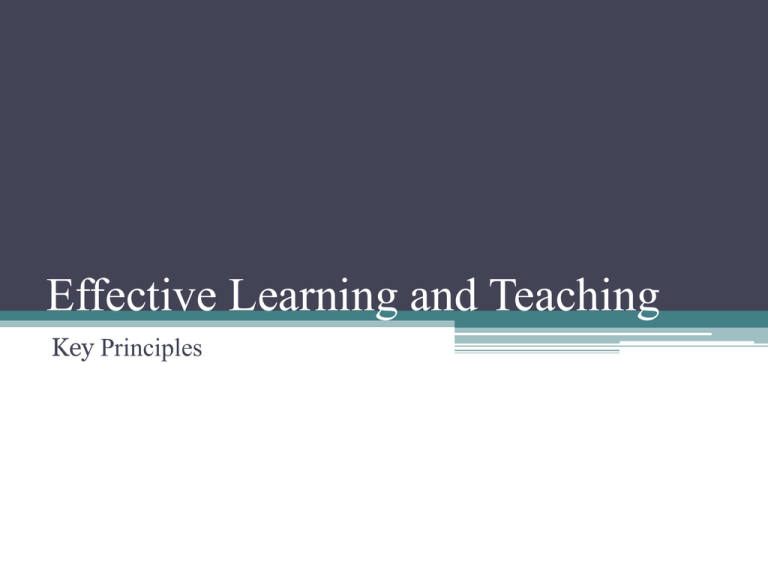
Effective Learning and Teaching Key Principles The overall purpose of this session is: • To affirm your own good practices • To develop self-reflection on them • To identify 4 key principles of effective teaching: ▫ Self-reflection and evaluation ▫ Effective planning ▫ Effective communication ▫ Effective assessment The 4 purposes of self-evaluation are: • • • • • 1. To identify our strengths 2. Minimise our weaknesses 3. Plan ahead 4. Evaluate the outcomes of this planning Why? Because: ▫ Teaching can be a solitary activity ▫ Teaching is a moral activity ▫ Teaching is a professional activity: standards are involved. • HOWEVER: However: • If people simply reflect on their own, there will be no significant change. (Boyd, 1995) • A simple enough statement, but having profound implications for: ▫ Objectivity (rendering the evaluation objective) ▫ Validity (rendering the evaluation valid) ▫ Transferability (rendering our teaching better) Sources for self-reflection include: • A reflective diary • Focus groups • Other groups • Interviews • Critical friendship • Observation • Mentoring • Questionnaires • Closure (transitional and final) • One minute papers • Think/Pair/Share exercises • The muddiest point • One sentence summaries • http://honolulu.hawaii.edu/in tranet/committees/FacDevCo m/guidebk/teachtip/assess2.htm Reflect, Identify, Act, Evaluate • Reflect: what is happening in my practice? • Identify: where is this happening? • Act: what could be done to improve practice? • Evaluate: what evidence could be used to validate my practice? Criteria for self-evaluation include: • Those generically identified in the scholarship of learning and teaching • Those contained in Framework Standards • Those contained in observation forms • Those identified through: ▫ peer observation ▫ critical friendship and ▫ mentoring Pause Time: • Any questions, comments or queries? • Common Weaknesses (but turn each into a positive): At the start: • • • • • An absence of learning outcomes Unclear learning outcomes Few if any links to prior learning Inattention to the environment for learning Teacher dominance from the beginning: one is not going to deviate from this • Assuming too much learner knowledge As class progresses: • Imbalance between content and processes • Losing sight of purpose: which is??? • Delivering content in an undifferentiated manner (very important/less important) • No formative learning (assessment): what has been understood/what not? • Limited interaction Leaving students out • • • • • Ineffective pacing Explaining is imprecise Absence of wait time: thinking time Whole class/didactic teaching Not dwelling on complexities: ▫ ▫ ▫ ▫ ▫ ‘This is complex…’ ‘Could anyone explain why it is complex?’ ‘It is ALSO complex because…’ ‘Do you understand this now?’ ‘Who could summarise?’ Effective teaching defined: • ‘Effective teaching refers to the extent to which the teacher employed learning outcomes successfully to bring about the intended outcomes for …the programme of study’. (Kyriacou, 1995) • ‘…effective teachers employ a range of assessment methods and techniques to monitor… understanding….’ (Hay-Mc Ber, 2000) Learning Outcomes • The definition above, emphasising learning outcomes, takes us forward to the next essential, which is planning for learning. • In the context of student-centred learning, a learning outcomes model is strongly advocated internationally. • So what are learning outcomes?
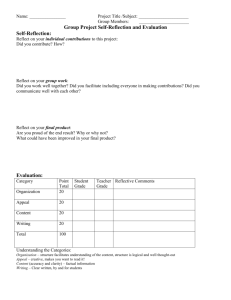
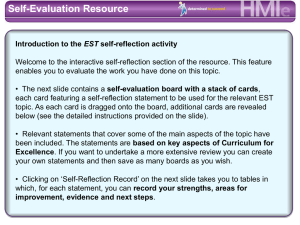
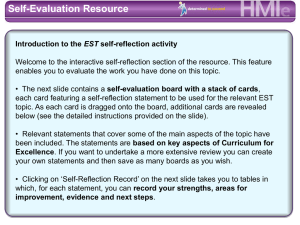
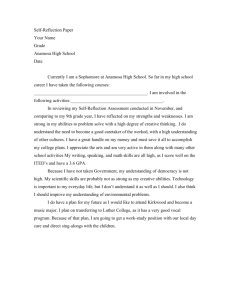
![[315.00 B]](http://s3.studylib.net/store/data/009428981_1-494b26d03509701d4085daef4fae2364-300x300.png)
